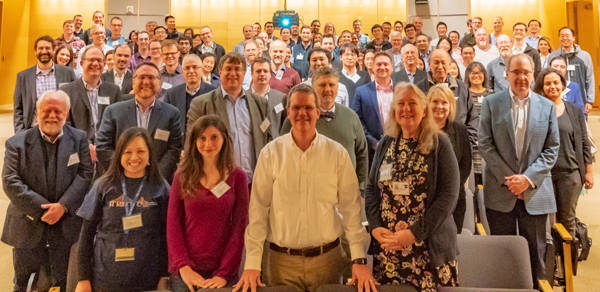Hyperpolarized 13C MRI as an Emerging Molecular Imaging Technique

Hyperpolarized (HP) carbon 13 (13C) MRI is an emerging molecular imaging technique that is actively undergoing clinical translation at multiple institutions. It allows rapid, noninvasive, and pathway-specific investigation of dynamic metabolic and physiologic processes that were previously inaccessible to imaging. At the UC San Francisco Department of Radiology and Biomedical Imaging, we've been interested in the outstanding research and potential clinical value of hyperpolarized carbon-13 MR.
With this in mind, we've created the Hyperpolarized MRI Technology Resource Center (HMTRC), led by Daniel Vigneron, PhD, professor, and Jenny Che, program manager. The goal of the HMTRC is to collaboratively develop new technology to advance this field in order to better identify and understand human disease, and ultimately to translate and disseminate these techniques for improved healthcare. The HMTRC is based on three collaborative Technology Research & Development (TR&D) projects, and its development is driven in a push-pull manner by these collaborative projects.
Recently, the HMRTC held a Hyperpolarized Carbon-13 MRI Technology Development Workshop. The workshop included lectures, hands-on training and discussions on dissolution DNP methodology, polarizer instrumentation, MR sequence and acquisitions, chemistry & pharmacy preps, clinical translation, and analysis & display software.
Also, scientists at UCSF Radiology recently reviewed the methods of hyperpolarization and 13C probes investigated to date in preclinical models of disease. Their review was published in Radiology. The article also discusses progress that has been made in translating this technology for clinical investigation, highlighting the potential roles and emerging clinical applications of HP [1-13C] pyruvate MRI. Researchers also detail the future directions to enable the adoption of this technology to advance the basic understanding of metabolism, to improve disease diagnosis, and to accelerate treatment assessment.
Zhen Jane Wang, MD, associate professor and co-director of the Body Research Interest Group (RIG) is lead author of this review. All co-authors are from UCSF Radiology and include Michael Ohliger, MD, PhD, Peder Larson, PhD, Jeremy Gordon, PhD, Robert Bok, MD, PhD, James Slater, RPh, PhD, Javier Villanueva-Meyer, MD, Christopher Hess, MD, PhD, John Kurhanewicz, PhD and Daniel B Vigneron, PhD.
